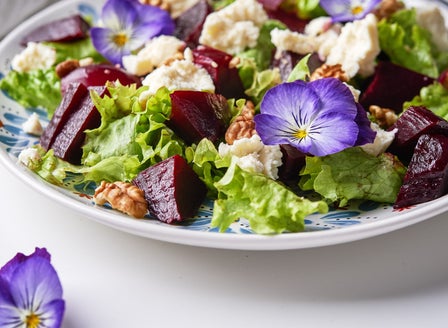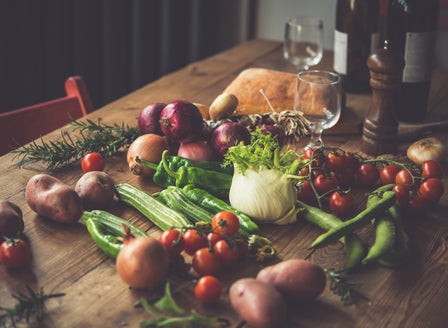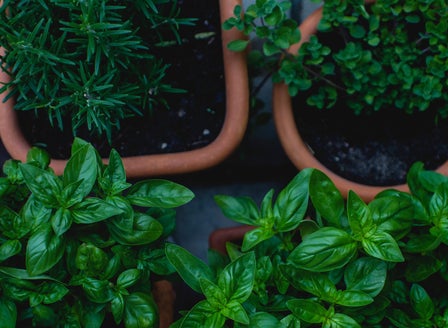This aromatic and flavourful member of the carrot family has been used for centuries the world over. The herb itself has a mild, sweet, aniseed-like flavour - like a less intense version of star anise. It not only tastes great but also looks great, and if left, it'll produce attractive flowers that are great at attracting a whole host of beneficial insects into your garden.
Planting Calendar
Fennel is a cool season crop and thrives better from autumn to early spring rather than the hot summer. If growing from seed, sow them mid summer to autumn ( February to April), and if growing them from seedlings, plant those when the weather and soil has cooled down, mid autumn onwards from the month of April to May.
Prepare
Position
Fennel grows best in a sunny position.
Soil
When planted into the ground Fennell likes a free draining soil that is rich in organic matter. To improve the organic content in your soil, break up the soil and add Kings Compost and Kings Sheep Pellets then mix together well. Fennell prefers a slightly alkaline pH (7.5 - 8), so if the soil is acidic, sweeten it with garden lime before planting fennel. When growing in containers, plant into Kings Container mix. This mix contains added water storage crystals and Saturaid, two products that help maintain moisture in the soil.
Plant
Space your seedlings about 30 cm apart to allow the bulbs space to grow. When planting into the ground, gently tap the plant out of its pot. Dig a hole twice the depth and width of the plants root ball. Mix Kings Compost into your existing soil at a 50/50 ratio, add Sheep Pellets and Kings Natures Organic fertiliser, then mix together. Back fill the hole with this soil, so that when planted the top of the plant’s roots sit level with the surrounding ground. Firm the soil down gently and water in well with Aquaticus Organic Garden Booster. When planting into containers plant into Kings Containers mix, as this has water retention crystals in it, which will help in keeping the soil moist
Care
Watering
Water slowly allowing the water to sink down into the roots, rather than allowing it to run off the top of the soils surface. Add Saturaid into the soil at planting as this will help channel the water deep down into the root zone. Consider setting up an automatic watering system – these can be simple and inexpensive.
Feeding
Feed fennel plants regularly with a liquid fertiliser like Aquaticus Organic Garden Booster. In addition a side dressing of Kings Sheep Pellets and Natures Organic Fertilser will ensure a good healthy crop.
Protecting
Protect against slugs and snails by apply regular applications of Tui Quash. Re-apply after rain.
Mulching
Fennel plants benefit from mulching. Mulch with Lucerne/Pea straw early summer to retain moisture in the ground when the soil warms up. Mulching also helps keep weeds away. As the bulbs grow in size, it is important to cover them with soil to retain their white colour and keep them cool and moist. Care must be taken to keep the area slug and snail free.
Spraying
Aphids and caterpillars can be an issue with Fennel spray with Yates Natures Way Fruit & Vegetable Gun.
General Care
When using sprays, chemicals or fertilisers always read the label and follow the instructions. Apply sprays in the evening to avoid harming beneficial insects.
Tip
If you cut off the bulb above the ground, new bulbs will grow from side shoots.
Top Varieties

Fennel Florence (Foeniculum vulgare azoricum)
Popular and grown for its bulbous base used in cooking.
Frequently Asked Questions
How often should I water fennel?
Water slowly allowing the water to sink down into the roots, rather than allowing it to run off the top of the soils surface. Add Saturaid into the soil at planting as this will help channel the water deep down into the root zone. Consider setting up an automatic watering system – these can be simple and inexpensive.
When is the best time to plant fennel?
Plant fennel in spring after the last frost or in late summer for a fall harvest. It grows best in cooler weather.
How do I harvest fennel?
Leaves: It takes about 55 days from sowing for fennel to reach maturity. Fennel Sweet Leaf green and bronze varieties produce feathery foliage with a sweet anise flavour. The leaves can be used fresh as a tasty addition to salads, coleslaw, dressings and fish dishes.
Which fertiliser do I use for fennel?
Feed fennel plants regularly with a liquid fertiliser like Aquaticus Organic Garden Booster. In addition a side dressing of Kings Sheep Pellets and Natures Organic Fertilser will ensure a good healthy crop.
What pests and diseases affect fennel?
Common pests include aphids and caterpillars. Fennel is generally resistant to most diseases, but ensure good air circulation to prevent fungal issues.


